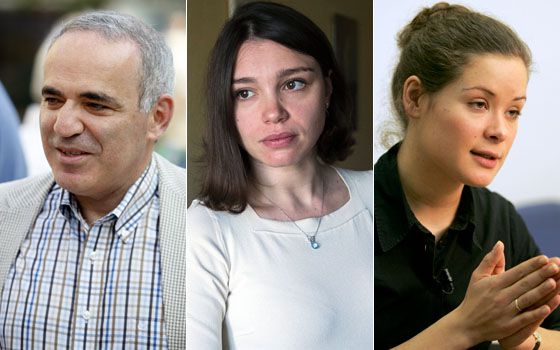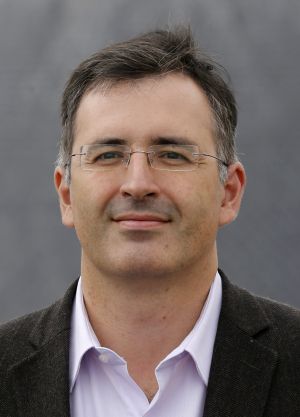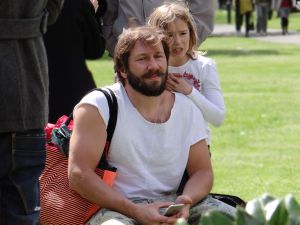Qualified professionals who leave Russia under political pressure have doubled
By: El País
Reference: El País

In theory there is no political persecution, for the prosecution or the investigation committee of Russia allege criminal suspicions against pests, such as Ilya Ponomariov, the only deputy of the State Duma (the lower house) who voted against the annexation of Crimea 2014.
 Sergey Guriev, a professor of Economics in France. / C. HARTMANN (REUTERS)
Sergey Guriev, a professor of Economics in France. / C. HARTMANN (REUTERS)
Ponomariov, a political leftist and one of the leaders of protests against irregularities in parliamentary elections in 2011 and presidential elections in 2012, has been deprived of immunity to stand trial for alleged involvement in a wasteful technology center in Skolkovo (the flagship project the time Medvedev replaced Putin as head of state). Ponomariov, specialist in high technology, now lives in California.
Maria Gaidar, the daughter of Yegor Gaidar, the architect of Russia’s liberal economic reform, this month has accepted the post of deputy governor of Odessa, who proposed Mikhail Saakashvili, Ukrainian current governor of that province and former president of Georgia. Gaidar, who studied public administration at Harvard, was deputy governor of the Russian region of Kirov, advises the City of Moscow and was involved in many projects of opposition. Now, it has even been accused of treason by established politicians of Russia and Ella Pamfilova, head of the presidential commission grants division, it has nullified that Gaidar had received as head of the NGO Social Action.
Journalists are another contingent migrating. In Latvia Meduza is writing a web founded by Galina Timchenko Timchenko in October 2014 was dismissed as director of the Russian news service lenta.ru after publishing an interview with a radical Ukrainian nationalist. The community is very large Russian-speaking journalists in Kiev, but these emigrants pen are not a homogeneous group. Some, like Yevgeny Kisiliov were stars on Russian television channels (NTV oligarch Vladimir Gusinsky) who received attractive offers Ukraine to stay out of work in the country in the first years in office Putin.
But there are new batch of migrants journalists as Muzhdabáiev Aidar, who has moved to Kiev to participate in the co-direction of ATR, Tatar channel that the Russian authorities have stifled this year in Crimea, at license renewal. The channel is now managed from Kiev, as journalists of ATR in Crimea “have no access to any official body,” says Muzhdabáiev by phone. “We still do not know if I’ll have trouble getting back to Russia,” says the professional who until recently was deputy director of Moskovski Komsomolets, the biggest newspaper in Moscow.
This month, the Russian writer Dmitry Bykov was lecturing in a packed room in London. “We were the same age than in Moscow,” said Roman Borisovich, who attended the ceremony and left Russia in 2012, where he was vice president of the largest insurance company in the state. It was to avoid problems to your boss she says, who pressured the security services to dismiss him for having publicly supported the campaign of political corruption Alexei Navalny. In London, where he lives, Borisovich campaigns for the British Parliament to legislate to make them public real estate transactions of Russian oligarchs in the UK. “The vast existing Russian diaspora in London was reinforced in recent times for political emigrants”, he said by phone.
In 2012, Alexei Navalny published the list of 16 people who testified supported with money from his own pocket the anti-corruption fund he had created. In the “list of the brave” plus Borisovich, was Sergei Guriev, the rector of the Russian School of Economics, and his wife Yekaterina Zhuravskaya economist, both resident in France today. Guriev, now a professor at SciencePo of Paris, was one of the authors of a report on the second trial of the Yukos oil company, whereby the imprisonment of Mikhail Khodorkovsky went on. This magnate, pardoned in 2013 and lives in Switzerland.
 Yevgeny Chichvarkin, the founder of the network of sale of mobile Evroset, in a recent image in London. / CORDON PRESS
Yevgeny Chichvarkin, the founder of the network of sale of mobile Evroset, in a recent image in London. / CORDON PRESS
Emigration has decimated Navalni team. Vladimir Ashurkov, exbanquero, sought asylum in the UK, claiming political persecution. Ashurkov fund was chief financial officer of corruption and Navalni in the campaign for mayor of Moscow and is accused of theft in Russia.
Resides abroad chess champion Garry Kasparov, arrested multiple times by engaging in acts against Putin. The biography of the famous chess player has been banned in a commemorative book Spartak Sports Club.
One of the leaders of the protests of 2011 and 2012 was Boris Nemtsov, who was murdered in Moscow in February. His eldest daughter, Zhana, has moved for safety to Germany, where he works as a journalist. In Estonia Tchirikova Yevgeny lives today, the leader of the movement to preserve the Khimki forest (outside Moscow) construction of a highway. Tchirikova temporarily left Russia says concerned about the safety of their daughters.
Abroad, after selling his company, he is Pavel Durov, the award-winning computer expert and founder of VKontakt (Russian Facebook), who refused to provide information to security agencies on euromaidan participants in Kiev.
Among the last to leave is Dmitri Zimin, an engineer of 82 years, founder of the mobile company Vimpelcom and possessor of a state award. Zimin has decided to close its founding dynasty, which supported young Russian scientists, after it was declared a “foreign agent”. In London, regentando wine trade, has lived since 2009 Yevgeny Chichvarkin, the founder of the network of sale of mobile Evroset, which after being accused of smuggling and tax evasion, eventually sold his company.